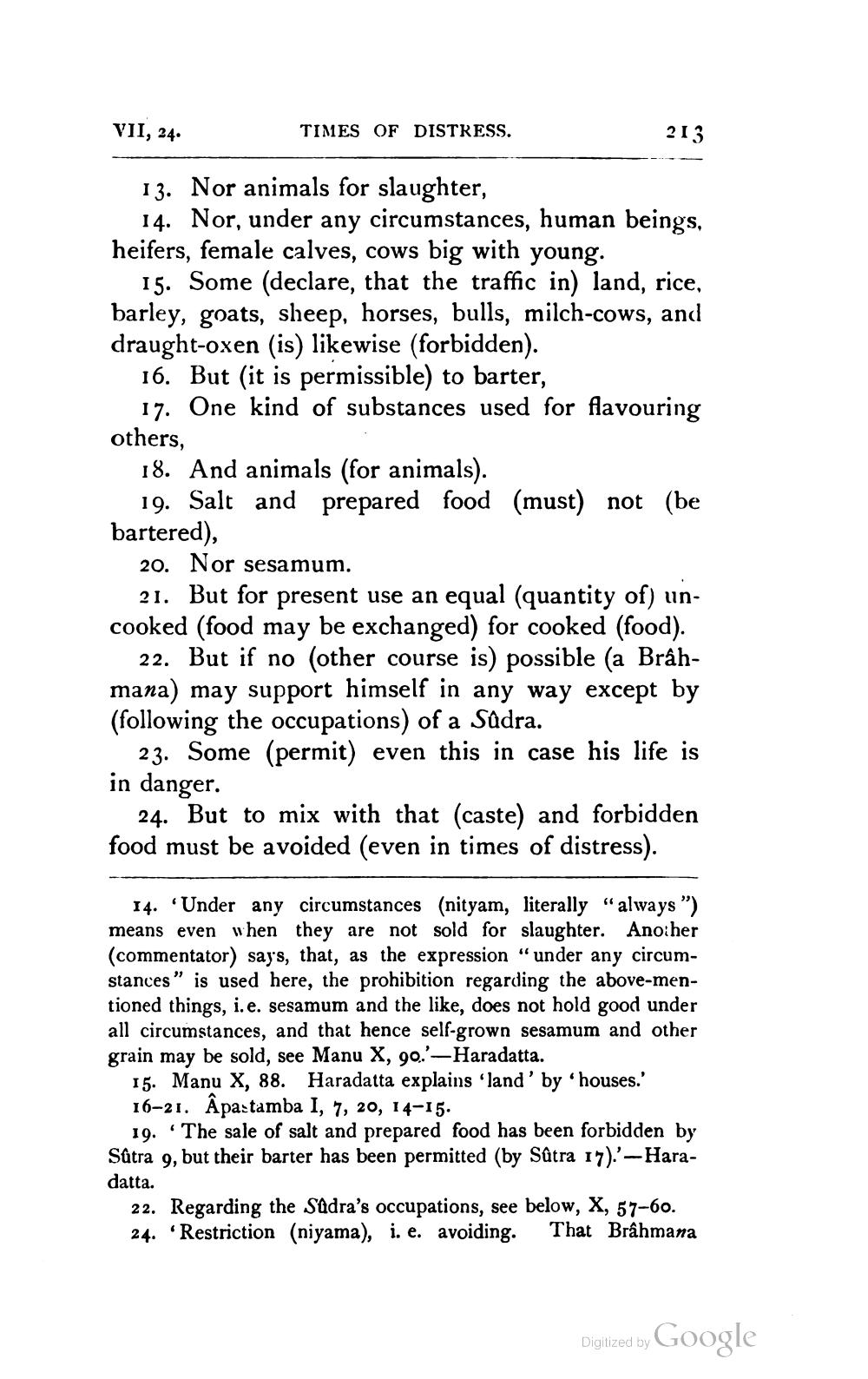________________
VII, 24.
TIMES OF DISTRESS.
213
13. Nor animals for slaughter,
14. Nor, under any circumstances, human beings, heifers, female calves, cows big with young.
15. Some (declare, that the traffic in) land, rice, barley, goats, sheep, horses, bulls, milch-cows, and draught-oxen (is) likewise (forbidden).
16. But (it is permissible) to barter,
17. One kind of substances used for flavouring others,
18. And animals (for animals).
19. Salt and prepared food (must) not (be bartered),
20. Nor sesamum.
21. But for present use an equal (quantity of) uncooked (food may be exchanged) for cooked (food).
22. But if no (other course is) possible (a Brâhmana) may support himself in any way except by (following the occupations) of a Sûdra.
23. Some (permit) even this in case his life is in danger.
24. But to mix with that (caste) and forbidden food must be avoided (even in times of distress).
14. Under any circumstances (nityam, literally "always") means even when they are not sold for slaughter. Another (commentator) says, that, as the expression "under any circumstances" is used here, the prohibition regarding the above-mentioned things, i. e. sesamum and the like, does not hold good under all circumstances, and that hence self-grown sesamum and other grain may be sold, see Manu X, 90.'-Haradatta.
15. Manu X, 88. Haradatta explains 'land' by 'houses.' 16-21. Âpastamba 1, 7, 20, 14-15.
19. 'The sale of salt and prepared food has been forbidden by Sûtra 9, but their barter has been permitted (by Sûtra 17).'-Haradatta.
22. Regarding the Sudra's occupations, see below, X, 57-60. 24. 'Restriction (niyama), i. e. avoiding. That Brahmana
Digitized by Google




